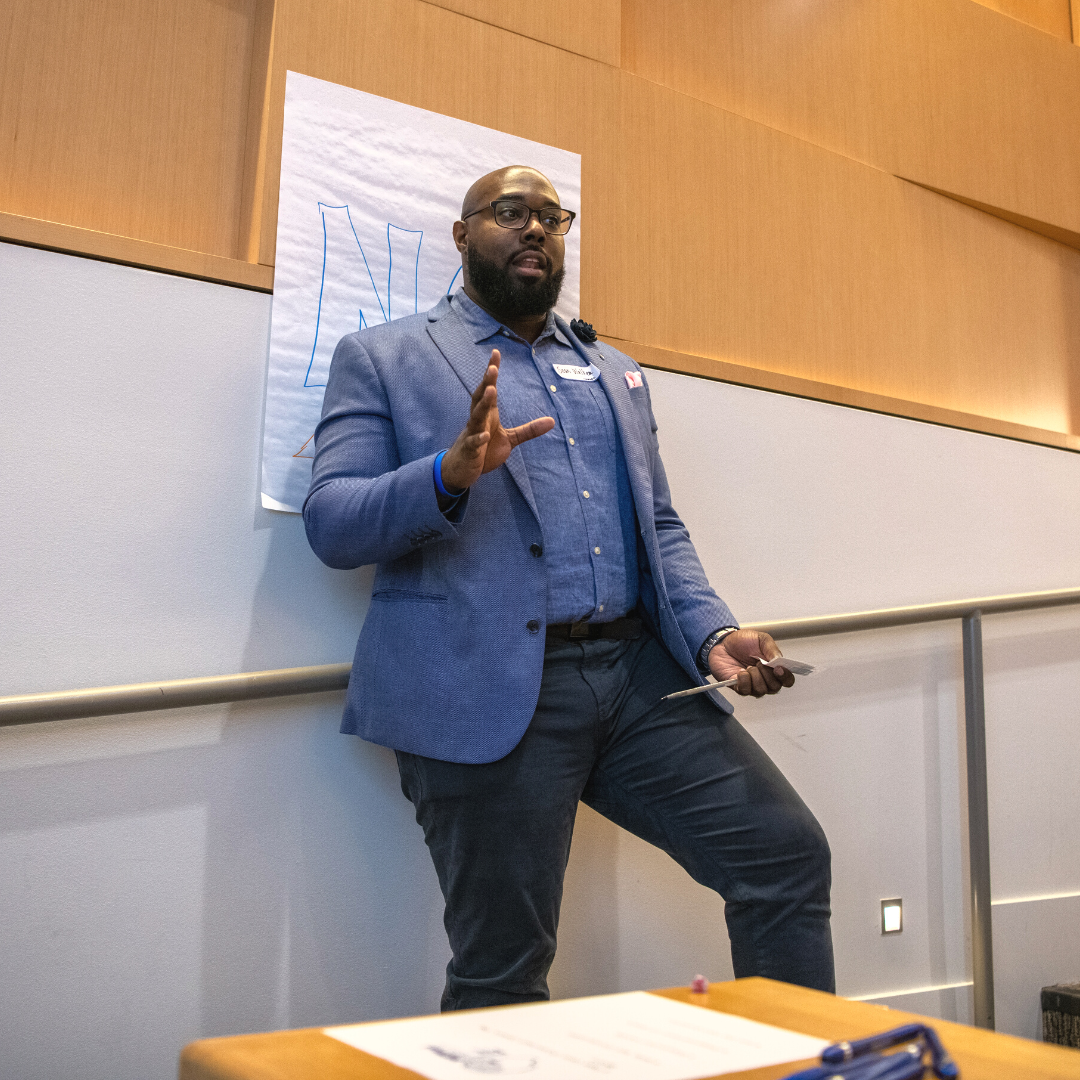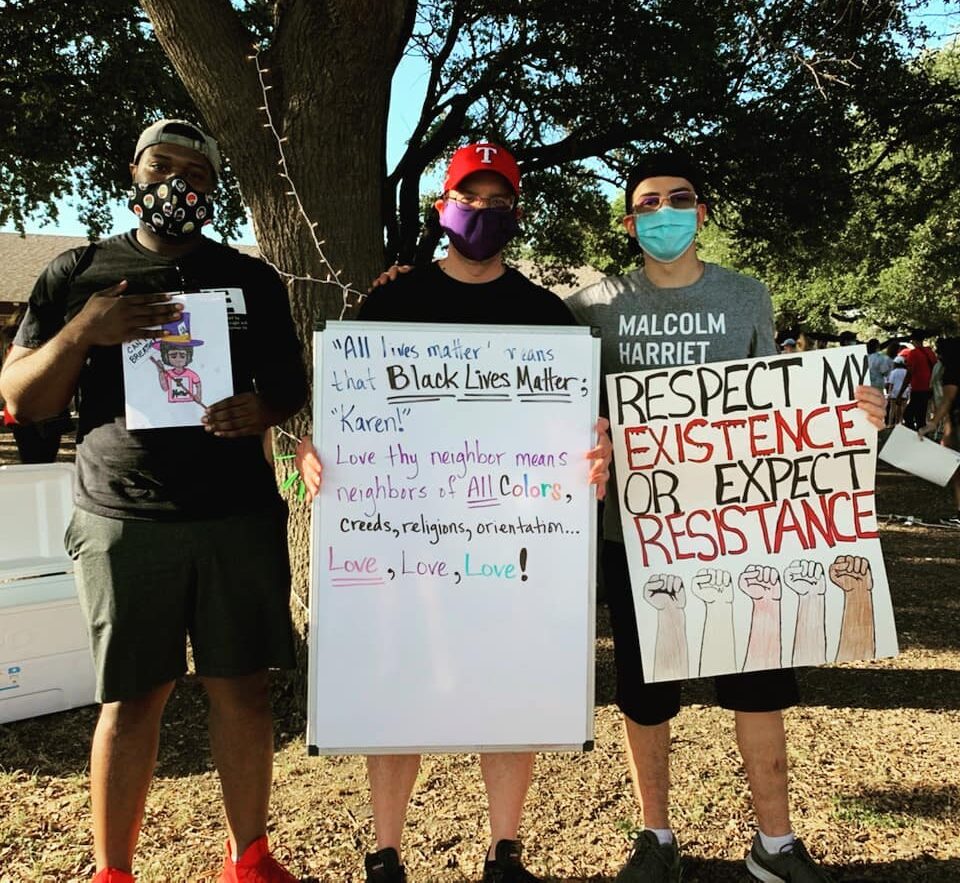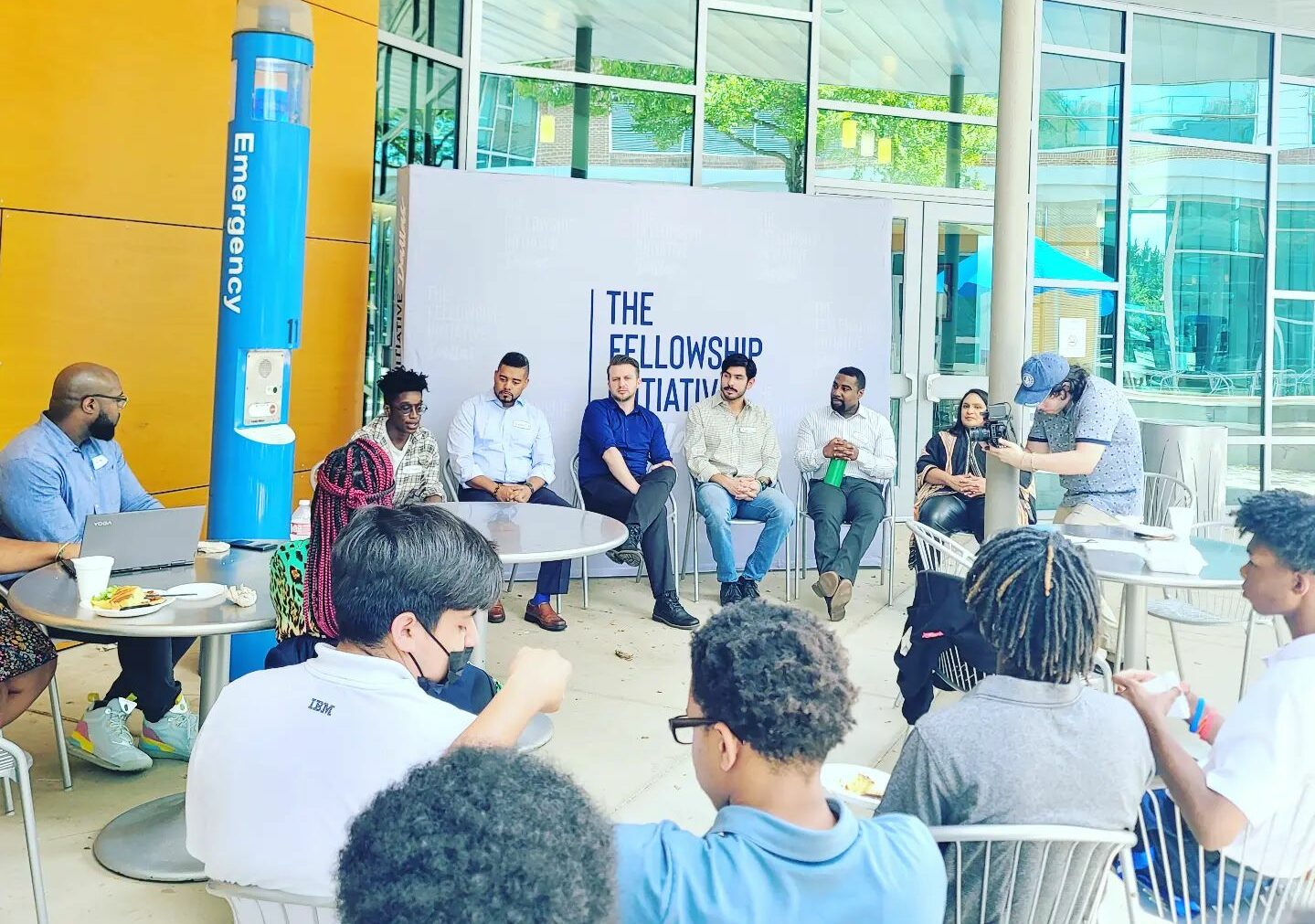In The Fellowship Initiative, Mental Health Education is College Prep
For Sean Walker, his family’s openness about mental health was a resource for navigating life in college.
His parents, who had experience in school counseling and social work, were consistent in discussing mental health at home. Later, he would later realize that wasn’t typical for all families.
“My dad has always meditated and emphasized how important allowing time for yourself is. Growing up, I saw a Black man go into his room, close the door and listen to music, stretch and do yoga. He was very intentional about setting an example and giving me coping tools,” Sean says. “My mom was a big proponent for talking about mental health in a way that a lot of Black parents traditionally are not, so I grew up with a different understanding of ‘if I need help or need to talk to someone, I can do that.’”
 Now Sean is finding ways to bring these conversations to the young men he leads as Program Manager of The Fellowship Initiative Dallas (TFI), a leadership program designed to support young men of color who are aiming for college.
Now Sean is finding ways to bring these conversations to the young men he leads as Program Manager of The Fellowship Initiative Dallas (TFI), a leadership program designed to support young men of color who are aiming for college.
“From the beginning, we felt like it was important for TFI to be a space where young men could come in and explore who they are in a safer environment than they’re probably used to,” Sean says. “I don’t mean physical safety but emotionally safe – being able to express themselves in a different way.”
That vision for a safe space where young men could explore topics like masculinity, identity and mental health took shape as a panel discussion, “Let’s Talk” – first in 2019 for the previous cohort, and now in 2022 for the current.
 But the current cohort lives in a different world than the last, witnessing nationwide protests calling for racial justice while isolated from friends and family due to a global pandemic.
But the current cohort lives in a different world than the last, witnessing nationwide protests calling for racial justice while isolated from friends and family due to a global pandemic.
“A higher rate of [the current Fellows] understand isolation,” Sean says. “Our first cohort had a very traditional school experience… all of the students we have now have experienced “I didn’t go anywhere for days, weeks, and months at a time.”
Brotherhood is in the program’s DNA and a core aspect of the Fellows’ experience. Now it seems to be the primary concern for many parents and guardians who are considering TFI for their student.
Sean says, “We have a much higher rate of parents that come to us and say “I’m not so much worried about him getting to college – I just want him to have friends.”
Navigating loneliness is one of many relevant topics discussed at Let’s Talk, along with identity, masculinity, and its presentation in culture, among others. The panelists are a diverse group, providing unique viewpoints across gender, age, and phase of life.
“The panel is a great way for these guys to hear some different perspectives,” Sean says. “It’s a good opportunity for us to practice making everyone feel intentionally welcome and actively protecting a safe space.”
Creating a safe space takes collaboration. Elyse Harris of MENTOR coordinated crucial details of the day. Fernando Lorence, who manages the broader organization of The Fellowship Initiative, flew to Dallas from New York to be at the panel.
Connecting with professionals in the field can provide key insight and help young men feel more comfortable with the idea of seeking help when needed. Professionals from Wellness 360, a local wellness and talk therapy practice founded by Dr. Jaya Mathew, led Fellows in exercises surrounding identity.

Tré Suber, a Let’s Talk panelist and Big Thought’s Communications Coordinator, says, “The panel was very inspiring and eye-opening. It felt really good as a young adult to share my mental health challenges with the youth, to create connections based on positive mental growth.”
Ultimately, the panel is an extension of the wisdom, intention and vulnerability TFI staff bring daily to the program – Donae Patrick provides mental health education for TFI, and Debbie Carey facilitates the program’s social-emotional learning component. Jermaine Owens, TFI Coordinator, consistently shares about his own journey and experiences with wellness.
When considering preparations for college, there’s an impulse to focus on what is required – test scores, applications, scholarships, and dorm arrangements. But as Sean says, the transition to college is complex.
“There’s so much that goes into removing someone from their environment and putting them in another one – if we’re not giving students every tool we can to help them navigate that in a productive way, then we’re not really preparing them for college.”
The hope is that, because of these conversations, young men would feel comfortable reaching out for help when they need it – whether now, during college or beyond – and that they would create an open door for other young men to engage in the conversation.
To learn more about The Fellowship Initative, click here.